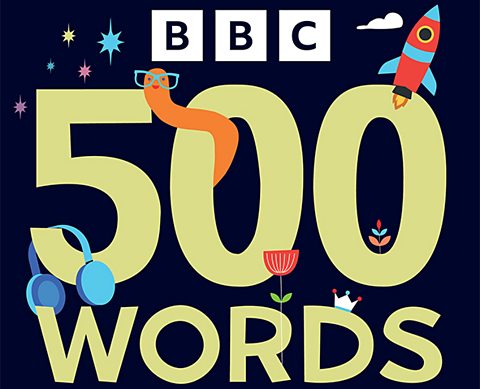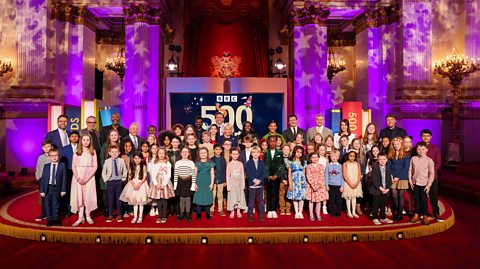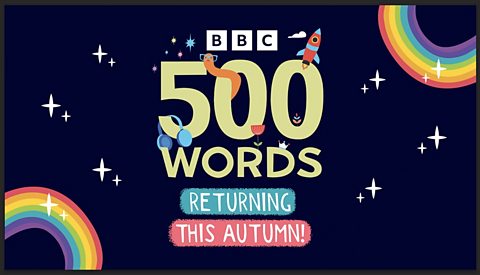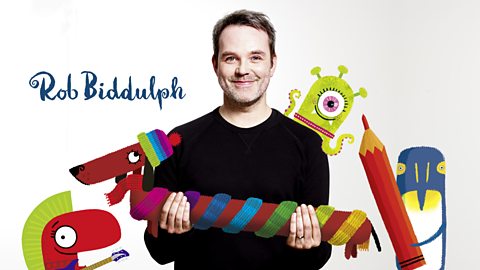Creative writing is a great way to get your child’s imagination flowing. Children can have lots of fun writing a story of their own – whether it's funny, mysterious, scary or cute.
Writing has great positives for children - according to the National Literacy Trust, one in three children say that writing helps them to relax while the Reading Agency points to research showing that children who engage in literacy are "three times likelier to have higher levels of wellbeing than children who are least engaged with reading and writing."
So how can parents help to encourage their child to write and create in order to enjoy these benefits?
The 500 Words competition opened on Tuesday 24th September and closes at 9pm on Friday 8th November 2024.

Getting them started
For some children, getting started seems easy but for others it can feel daunting. What shall I write about? I’m not very good at writing! I’ll never win! As a parent, you want to help your budding writer create their best story, so now that the ґуПуґ«ГЅ 500 Words competition is back, there's an opportunity for your child to practice their writing skills with the added possibility of winning some fantastic prizes.
Jennifer Howze is Editorial Director of parenting site Netmums and she says: "5-11 years is a key learning stage for children so 500 Words is a great way for parents to spend time with their kids, provide encouragement, support their writing skills and help develop their vocabulary."
Here's some advice from 500 Words partner, the Oxford University Press, to gather some simple ways to help you to do just that and launch them on a path to enjoyment and creativity!

Inspiration is all around us
It can be hard to come up with an idea for a story when you’re sitting in front of a blank piece of paper with a pencil. Start looking for inspiration in everyday activities instead - on the way to and from school, from stories in the news, or conversations overhead on the bus or in a shop, even on the television, like deep in the ocean or on the football pitch, or perhaps from just looking out of the window and daydreaming.
Start by asking questions about these sparks of ideas – where is that person rushing to, what does that dog dream about - any questions that will start them getting creative. If your child needs extra inspiration - take a look at the 500 Words website which is bursting with useful tips and advice. The ideas might not be part of the final story, but it will help practice getting your child’s imagination to go wild!
Talk about where the story is set and what kind of story it is

Will the story be set in history or in future? Is it going to be an adventure story or a spy story, or a fantasy story? Some stories take elements from each of these types of stories and mix them together to make a mash-up. The title of the story will help the reader know what to expect as well.
Encourage your child to pick up themes from books they read so they can see what they enjoy and this can help inspire their own writing.
Make a plan!

Stories need a beginning, middle and an end. You can help your child to keep the plot clear by summarising the story back to them as they go along.
Most stories have an arc: at the beginning we meet the main characters and discover where the story takes place. In the middle, the main character has a problem or difficulty to deal with. This will be where the story gets exciting. As we near the end of the story, there is a sense of calm as the problem is solved.
Creating a structure will help you child ensure they include all the elements they need.
Don't give up!
Spencer: Hi, I'm Spencer and I am a 500 Words winner.
Presenter: Did you come here today expecting to win?
Spencer: No, not at all.
Presenter: Not at all.
Spencer: My worries when I entered was I just wasn't gonna win, I just didn't think it was good enough. I didn't like writing, it's just very boring.
Hugh Bonneville: I think I'm right in saying that you weren't going to enter originally. Is that right? Because I think you've sometimes found spelling and things like that a bit of a challenge you thought –
Spencer: Yeah.
Hugh Bonneville: and so you were then told no it's your imagination that we're after.
Spencer's Mum: So Spencer was diagnosed with dyslexia towards the end of Primary 3.
I think we'd always known that there was something, something different, that Spencer was finding reading, learning to read, learning all his sounds, learning his phonics really quite difficult.
But certainly when it comes to having brilliant ideas and being able to make people laugh, he was able to do that in his story. I think his brain definitely, it is a bit of a superpower his dyslexia, I think when it comes to writing stories.
Spencer: Having no punctuation in the marking makes it a lot better for everyone, because it's just fully about the story, not anything else.
What really helped me when I was writing the story was being allowed to use your iPad. It made it a lot easier to type things down, and all the words auto-corrected, so it was really nice and easy.
Romesh: That is so funny, have you always been this funny?
Spencer: Yes!
Romesh: Yeah okay.
Spencer: The chances of me being a 500 Words silver winner were, was absolutely amazing, one in 44,000 my mind was… [MIND BLOWN]
Spencer's Mum: I think winning the competition has really given Spencer the confidence to give it a go and try and write more and put his ideas down on paper, he has a wee ideas book for scribbling things down, so it really has made a big difference.
Spencer: I want to write a sequel to my current story, maybe something like 'The ASDA Thief' or 'The Revenge of Tesco'.
When writing a story, it's very common to have a little wobble or crisis of confidence.
Spencer, who went on to win a Silver Award in the 2023 competition, wasn't even planning to submit his story, feeling that struggles with spelling and punctuation, as a result of his dyslexia, would hold him back from being able to win.
Spencer told 500 Words that "having no punctuation in the marking makes it a lot better, because it’s really all about the story." And said that being able to write the story on his tablet helped, as he was able to get spelling assistance from autocorrect.
Spencer's story can be an inspiration to everyone. No matter what you feel about your chances - never give up! You might just end up a 500 Words winner!
Draw pictures
Encourage your child to have a go at drawing the main characters in their story. They can think about how they walk and talk at the same time. Some prompts might be, does the hero have features which will help them in the story? What clothes does the villain wear? Try giving them names which suit their character.
A thesaurus can help with suggestions for different words. When your child thinks of a word, help them to look it up in a thesaurus where they'll discover similar and related words. There will be adjectives to describe the characters and what they do, adverbs to help how they do it, and hints and tips which might come in useful.
The Oxford University Press has partnered with 500 Words to create some resources you and your child can look at together to help them start the writing process.

Stick to the plan
If they want to enter the competition - the story can only have 500 words. It's easy to get to the end and realise that they’ve run out of words so it’s a good idea to keep counting them up and checking back to the plan. That way there will be plenty of words for each part of the plot.
Read it aloud
Reading the story to someone new will help to spot any holes in the plot. Now is the time to help your child tweak their story, make any changes and rewrite any bits that they don’t like.
It will soon be their best story ever!

For more information on 500 Words, visit their website
, and the are partners of 500 Words. is a partner of Parents' Toolkit

More from ґуПуґ«ГЅ Bitesize Parents' Toolkit…
Parents' Toolkit
Fun activities, real-life stories, wellbeing support and loads of helpful advice - we're here for you and your child.

Five multisensory activities you can do with your child at home
Dr Susie Nyman shares her top tips on multisensory activities that you can do around the house with your child.

ґуПуґ«ГЅ Teach 500 Words competition
All you need to know about entering the ґуПуґ«ГЅ Teach 500 Words competition.

Rob Biddulph's five tips to help you confidently draw with your kids
Rob Biddulph, author and official illustrator for World Book Day, has some great tips and tricks to share to help you draw with your kids.

Creating a comic book - tips to help your child get started
Check out these free drawing tutorials with Beano Studios to help your child improve their comic art skill-set.

